 Petzlover
Petzlover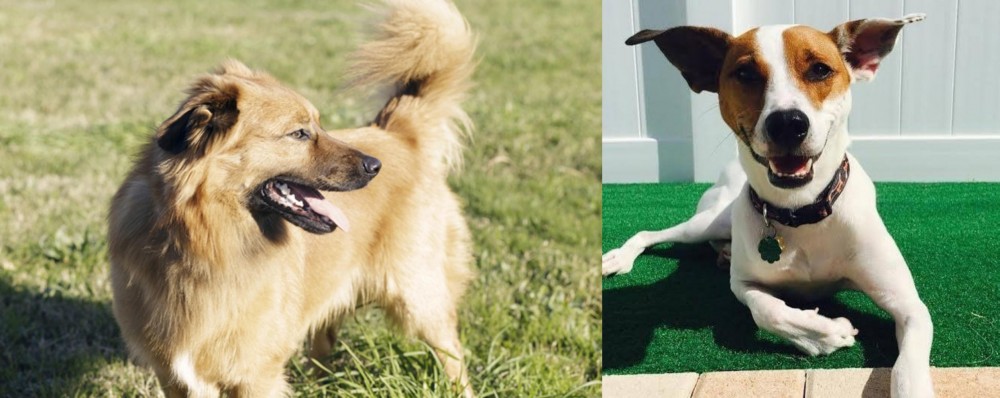 Basque Shepherd is originated from Spain but Feist is originated from United States. Both Basque Shepherd and Feist are having almost same height. Basque Shepherd may weigh 14 kg / 31 pounds more than Feist. Basque Shepherd may live 3 years less than Feist. Basque Shepherd may have more litter size than Feist. Basque Shepherd requires Moderate Maintenance. But Feist requires Low Maintenance
Basque Shepherd is originated from Spain but Feist is originated from United States. Both Basque Shepherd and Feist are having almost same height. Basque Shepherd may weigh 14 kg / 31 pounds more than Feist. Basque Shepherd may live 3 years less than Feist. Basque Shepherd may have more litter size than Feist. Basque Shepherd requires Moderate Maintenance. But Feist requires Low Maintenance
 The Basque Shepherd is one of the oldest dog breeds. With this Spanish dog, you’ll find paintings dating back 12,000 years ago. The Basque Shepherd is known as a landrace breed, which means the dog hasn’t gone through the same selective breeding programs as what other breeds have. Landrace breeds have more variations in appearance and temperament than regular breeds.
The Basque Shepherd is one of the oldest dog breeds. With this Spanish dog, you’ll find paintings dating back 12,000 years ago. The Basque Shepherd is known as a landrace breed, which means the dog hasn’t gone through the same selective breeding programs as what other breeds have. Landrace breeds have more variations in appearance and temperament than regular breeds.
The Basque Shepherd has 2 distinct varieties, the Gorbeiakoa and the Iletsua. The smooth-haired Gorbeiakoa has a softer coat that is fairly short while the rougher-haired Iletsua has a lighter coloured coat, and unlike the Gorbeiakoa, the ears are not typically erect.
Even though this is an ancient breed of dog, only the Royal Canine Society of Spain recognizes the breed with the two varieties, and in January 1996, the two breeds - Iletsua and Gorbeikoa – were recognized.
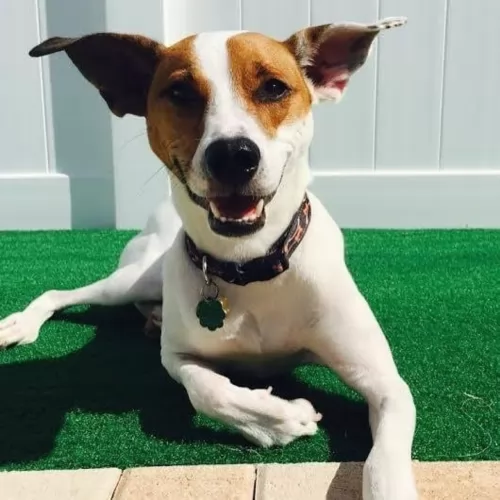 The Feist is a small dog from the United States, coming from Terrier dogs which were brought over to the States. It is believed that these Terriers included crosses between several terriers – the Manchester Terriers, Smooth Fox Terrier and English White Terrier – dogs used as ratters and known for their skills in killing rats.
The Feist is a small dog from the United States, coming from Terrier dogs which were brought over to the States. It is believed that these Terriers included crosses between several terriers – the Manchester Terriers, Smooth Fox Terrier and English White Terrier – dogs used as ratters and known for their skills in killing rats.
The Feist isn’t a new type of dog and in fact there are records of the dog which go back centuries. George Washington even referred to them in 1770 already, and the breed was popularized by President Teddy Roosevelt, who hunted with his Feist.
 The Basque Shepherd is a strong, well proportioned dog with brown eyes and medium sized ears, which sometimes have folds. This medium-to-large dog has a beautiful fawn coat of medium-length hair that can be straight or slightly wavy. He has a long feathery tail that will wag readily when he sees his owner. You’ll find other colors for the Basque Shepherd shared between the two varieties - a yellow orange or copper coat with other shades being red, blue and black. His hair is shorter on the head and he doesn’t battle with hair over the eyes.
The Basque Shepherd is a strong, well proportioned dog with brown eyes and medium sized ears, which sometimes have folds. This medium-to-large dog has a beautiful fawn coat of medium-length hair that can be straight or slightly wavy. He has a long feathery tail that will wag readily when he sees his owner. You’ll find other colors for the Basque Shepherd shared between the two varieties - a yellow orange or copper coat with other shades being red, blue and black. His hair is shorter on the head and he doesn’t battle with hair over the eyes.
The Basque Shepherd is a highly intelligent dog and also very energetic. Of the two different kinds of Basque Shepherd, it is the Gorbeiakoa which is the more outgoing. The dogs will require a firm owner and they thrive on the discipline when it is combined with lots of with lots of exercise and activities.
The Basque Shepherd is generally friendly with people, if not a little reserved with strangers. He gets on well with children and other pets in the home, although socialization and training will be necessary to bring out their best.
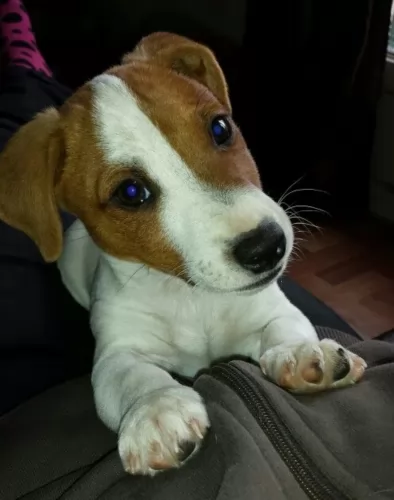 Standing at about 46cm to 56cm in height and weighing in the region of 10 to 15kg, the Feist is a short haired dog that doesn’t shed much and he is not hypoallergenic.
Standing at about 46cm to 56cm in height and weighing in the region of 10 to 15kg, the Feist is a short haired dog that doesn’t shed much and he is not hypoallergenic.
The coat of the dog is available in a variety of colors but they are essentially a bi-colored dog such as red and white, tan and white, black and white, while solid colors are fawn, white, light brown, black and brindle too.
Perhaps because of so many genes being involved with this dog, it is more easily identified because of its hunting abilities. He is a sturdy dog with a medium length tail which he holds up. Some Feist owners prefer the look of a docked tail and then docking is between the second and third joint of the tail. The Feist has erect or semi-erect ears.
Intelligent and alert, the Feist is a dog that will respond well to training. As with any other dog, training and socialization will be important for him so that he is obedient. He is energetic, curious and alert and above all he wants the attention of his human family.
 The dog is well suited to being a family pet, loving to spend time with family, being a people-oriented breed. He gets on well with children as well as other pets in the home, but can be reserved with strangers.
The dog is well suited to being a family pet, loving to spend time with family, being a people-oriented breed. He gets on well with children as well as other pets in the home, but can be reserved with strangers.
He doesn’t have an aggressive nature, and yet he does what it takes to protect his beloved human family.
He is full of energy, hardy and tough. He loves his human family and wants to be included in all their activities. He is energetic though and as a responsible dog owner, you want to make sure that your Basque Shepherd has enough space to run.
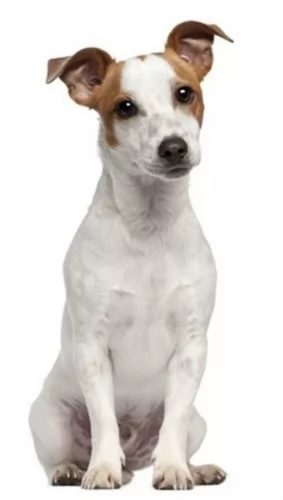 Loving to be around his human family and being a devoted and loyal canine friend, the Feist is also an intelligent, energetic dog who is fairly easy to train.
Loving to be around his human family and being a devoted and loyal canine friend, the Feist is also an intelligent, energetic dog who is fairly easy to train.
Bright and alert he makes a good watchdog too, but is amicable enough to get on well with other pets in the home as well as with children.
He can be stubborn so training and socialization will be important for him. As it is, he likes a firm, strong owner and in exchange for good care, he will become your devoted, loyal friend.
 Because this is an ancient breed, the Basque Shepherd doesn’t have to contend with genetic health problems such as more modern breeds. Just like other dogs though, he could be prone to certain conditions such as hip dysplasia, eye problems, ear infections and cancer. As a larger breed, he may also be prone to bloat.
Because this is an ancient breed, the Basque Shepherd doesn’t have to contend with genetic health problems such as more modern breeds. Just like other dogs though, he could be prone to certain conditions such as hip dysplasia, eye problems, ear infections and cancer. As a larger breed, he may also be prone to bloat.
Breeds with floppy ears, such as the Basque Shepherd will be more prone to developing ear infections. To prevent infection, keep his ears clean and dry. If you’re unsure, the vet can guide you how- and what to do.
This is a disease which is common to other dog breeds too and not just the Basque Shepherd. This condition affects the hip joints and can result in chronic pain for the dog and also lameness. Checking your dog’s weight is important and the pain can be managed with medication.
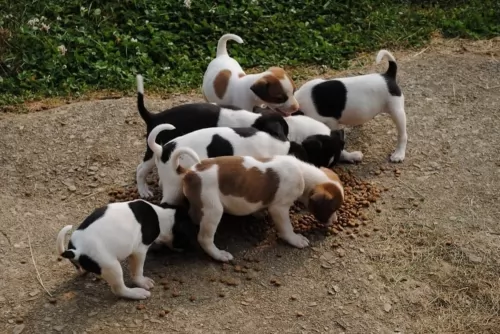 A Feist is a robust dog who doesn’t have any particular health issues, and with good care he can reach 18 years of age if looked after well. Hip Dysplasia is such a common dog illness that it always bears mentioning.
A Feist is a robust dog who doesn’t have any particular health issues, and with good care he can reach 18 years of age if looked after well. Hip Dysplasia is such a common dog illness that it always bears mentioning.
This is a ball and socket joint problem where the joint doesn’t function smoothly and the grinding of the bone leads to pain and arthritis for your pet. You'll notice he battles to play games anymore and he also battles to get up after lying down. You need to know that this disease isn’t reserved for old dogs but can start while your dog is still a puppy and that it can lead to lameness.
Look out for allergies in your dog as they can cause a host of problems which can include his skin, his breathing and problems with digestion. Typical symptoms of a dog with allergies include sneezing,scratching and very distressing for a dog, itchy and red skin which can eventually ooze.
As a responsible dog owner it is imperative when you detect problems with your dog, to get him to the vet immediately.
 This is a medium to large breed dog and he should therefore be fed a high quality food which has been formulated for medium to large breeds. Because he is a herding dog, you might want to also look at an active-dog or working-breed formula to supply him with that much needed energy.
This is a medium to large breed dog and he should therefore be fed a high quality food which has been formulated for medium to large breeds. Because he is a herding dog, you might want to also look at an active-dog or working-breed formula to supply him with that much needed energy.
The Basque Shepherd’s coat is lush and long with either straight or wavy hair. Regular brush at least twice a week will maintain the coat, get rid of loose hair and prevent fleas.
The Basque Shepherd is an intelligent breed that will respond well to socialization and training. He is a breed that loves sports too because of this very high energy levels. You need to be careful with the Basquae Shepherd around small children, not because he is aggressive in any way, but because he is highly active, and his exuberance and boisterous antics could see him unintentionally knocking over small children.
 Grooming your Feist dog isn’t going to be costly or difficult at all, as with his short, smooth coat he will essentially only require a brush twice a week.
Grooming your Feist dog isn’t going to be costly or difficult at all, as with his short, smooth coat he will essentially only require a brush twice a week.
It’s good to get into the habit of brushing him as not only does it keep his coat sleek and shiny, he loves you paying him attention.
All dog owners need to know that grooming goes beyond just brushing the coat. You want to also check his nails that they are short, check in and around his ears and brush his teeth with special dog toothpaste and toothbrush.
Give your Feist the very best dog food there is. Home-made is always good but if you feed him commercially manufactured food, make sure its a quality one. Some raw meat added in every now and again is important for his health. Ensure fresh, cool water is available to him around the clock.
Your Feist is an energetic dog that has been accustomed to hunting and running down small prey. He is an outdoor dog, thriving on fun and games. Take him on your walks, your hikes or when you go cycling or swimming. He wants to be right there with you involved in everything. While he can slot into life in the city or the countryside, he isn’t an indoor dog and it certainly won’t be good for him if you keep him cooped up in a tiny garden and pretty much forget about him.